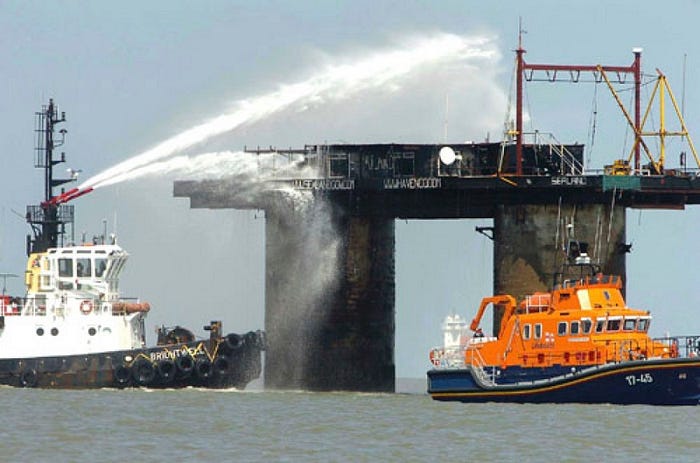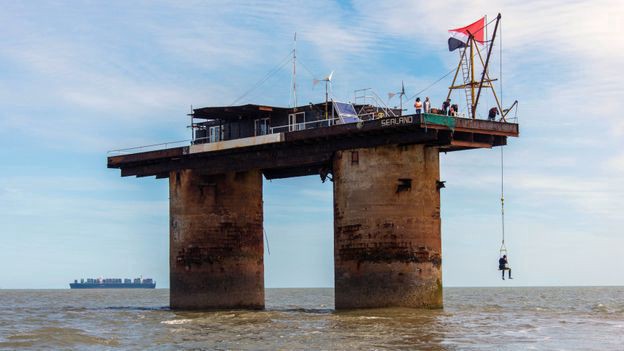 ou would think that this is some sort of confusion as we cannot legally say that an old sea platform can be considered a small country. Well, it seems that if you have the right paperwork anything is possible. Sealand is in fact a microstate that can be located ten kilometers from the coast of England. This sea platform has quite a lot of history behind it, which led to it being a country that requires you to have a passport to enter. The country even has its own passport that can be used to travel to sixty different countries around the world.
ou would think that this is some sort of confusion as we cannot legally say that an old sea platform can be considered a small country. Well, it seems that if you have the right paperwork anything is possible. Sealand is in fact a microstate that can be located ten kilometers from the coast of England. This sea platform has quite a lot of history behind it, which led to it being a country that requires you to have a passport to enter. The country even has its own passport that can be used to travel to sixty different countries around the world.
History of Sealand
Sealand, or at least the sea platform that holds the country today was built during the Second World War by the British as an anti-air defensive fort against German fighters and bombers. After the war ended, the platform was never put to any use, nor destroyed. In the 1960s a group of enterprising DJs used the platform to set up an illegal radio station in order to get pop music to British listeners. As they were in a remote location, it was difficult for the British authorities to catch them. The problem is that it impacted the BBC which had control of the British radio industry at the time as there was no such thing as commercial radio.
One very interesting aspect is that there were a few such naval forts set up in World War 2 and this scheme with pirated radio stations seemed quite interesting. Well, it was interesting enough to make Paddy Roy Bates, leave his job as a businessman, and set up his own radio station which was used to broadcast music to Essex, England. His radio station was named “Radio Essex” and he set it up on the naval fort named Knock John, the one that he actually fought on in World War 2, that is how he knew of its existence.

Paddy Roy Bates had enough with the society he was living in, so he decided that he would take his whole family and create his own country on one of the Naval forts used in World War 2. He made this decision once the British government allowed commercial radio, which meant that he could run a legal business. Therefore on September the 2nd, 1967 he declared the naval fort “Rought Towers” (nickname of the naval fort) the Principality of Sealand.
As they developed the reputation of their country, they started issuing their own currency, stamps, and even passports. Only 300 passports have been issued so far over the years, only to people that the Principality of Sealand could trust.
Obviously, this new country caught the attention of many people, some of them wanted to do some harm and eventually start a small war. In 1978, the Sealand naval platform was set on fire and the family was taken as hostage by a German lawyer named Achenbach who pretended to be the Prime minister of Sealand. He hired some mercenaries and took over the “country”.

The event was important enough that the British and German governments got involved to defuse the whole situation. At some point, Roy Bates took over the naval platform and took Achenbach and his men as hostages. This made the German government send a diplomat to negotiate with Bates and free Achenbach. Even after Achenbach got back to Germany, he still endorsed that he was the Prime minister of Sealand.
However, Roy Bates considered that sending a diplomat to Sealand meant that Germany recognized Sealand as an actual country. International law says that artificial structures such as naval platforms cannot be considered islands. However, as the platform is settled in international waters, it is not in the possession of the British Government, therefore, from a legitimate point of view, we can consider this as a real country, even if most states don’t.
Avid Writer with invaluable knowledge of Humanity!
Upcoming historian with over 30 million views online.
“You make your own life.”





